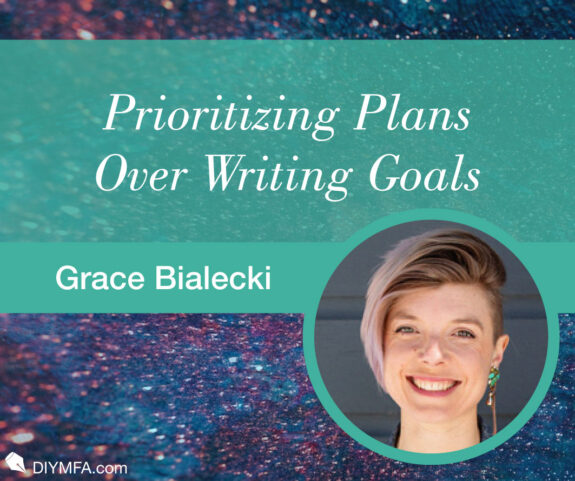Earlier this week, a query response popped up in my inbox. I’ve been shopping around my second novel for almost a year, and even though I’ve sent back a revise-and-resubmit to an agent, it’s been hard to stay optimistic. Naturally, I steeled myself for the worse as I clicked that ominous bold subject.
It was from my dream agent’s assistant, and she said the project “sounded like a great fit.” She requested the full manuscript, along with a two-to-three page synopsis, both of which I had at hand. As I sent them off, I took a moment to bask — I’ve dreamt of being represented by a literary agent for almost a decade, and here I was, closer than ever.
But let me pause, and try to sum up the steps it has taken to get this close to that goal: commit myself to writing a second novel; write a first draft in notebooks; type up that draft then edit it for clarity; join a novel writing group; submit and revise chapters with them over the course of two years; read full drafts myself and do edits based on the feedback of writer friends; get through four novel drafts then send it to a developmental editor; revise based on her feedback; do a final read-through; put together a query package; get feedback on the query package; put together a list of agents and start querying; have a revelation and change the last fourth of my book; get back notes for a revise-and-resubmit; spend three months doing those edits; tweak my query letter again; meticulously research agents; wait, wait, wait.
I’ll stop there because if I started to get more specific, that list could take up the rest of the post. The above was all part of my plan to achieve my goal, and within each step there were smaller steps and deadlines. These included chapters to submit for my writing group, sections to finish editing before holidays or travel, taking a class on how to write a synopsis, and many many other tiny actions that all added up to one thrilling email.
Whether your writing aspirations are selling a three-hundred-page novel, starting a memoir to share with your family, or putting together a poetry chapbook, we can all take the same first step to achieve these dreams. We can all start by making a plan.
Break Your Project into Manageable Pieces
In my past life leading the sales team at a voraciously growing coffee start-up, we often closed deals then had no idea how to fulfill them. There would be deadlines with roasters, cold brew production, the delivery team’s schedule, all of which interlaced into an insurmountable knot of logistics. Luckily, we had an unflappable COO who would end these meetings by making a project management sheet, breaking everything into bite-sized tasks, throwing on some reasonable deadlines, and saying, “You have your marching orders.”
Although I left the start-up world, I’ve brought the same style of project management to my writing. In addition to making a weekly plan of my writing projects, whenever I find myself overwhelmed by the simple task of, say, finishing a novel, I pause and think about my marching orders — my next steps and getting them done.
If you’re starting out a brand new project or feeling daunted by the work it takes to finish a draft, consider pausing and getting granular. What are the next steps you need to take? They could be writing an outline, finishing the opening, or getting a first draft you can read through. Then think about how many weeks that could take. When will you finish each section? What days will you write? The more you can break your goal into achievable steps, the easier it will be to make progress towards. And once you have your marching orders, you’ll know exactly what you need to work on, rather than spinning your wheels and staring at the dreaded blank screen.
SMART Goals
Another way to frame your goals and make them more achievable is by getting smart. SMART goals are Specific, Measurable, Achievable, Relevant, and Time-bound. Although this framework is used across many industries, there are a few useful ways to adapt it for writing.
Specific
Yes, specific, but not too specific. For example, I’m more likely to set the goal of writing a short story and having it published than writing a short story and having it published by X Literary Magazine at Y Date. As writers, we have to acknowledge the things that are out of our control, especially when it comes to editor’s timelines and acceptance rates.
Measurable
Measurable means hours, word counts, chapters, drafts, and anything else we can put numbers on. For me, it’s infinitely more useful to say “finish edits on chapters one to three” rather than “edit the opening.”
Achievable
This ties back to the idea of not being too specific or too time-bound. In using this practice over my writing years, I’ve found that most of my goals do happen, as long as I expand my timeline. For example, finishing my second novel is taking closer to five, not three years.
Relevant
Is your goal deeply important to you? And how does it fit in the larger framework of your literary aspirations? Often, if I find myself contemplating applying to a fellowship or contest, I’ll ask myself how relevant to my larger goals the opportunity is.
Time-bound
Remember to give yourself some flexibility here. For example, although I’ve wanted an agent for years, when I started querying in 2022, I didn’t set the goal of getting one by 2023. Since I was familiar with the process, I knew these things take time. While it is important to have an ideal deadline, as writers this is the one where I found we need the most flexibility.
Keep in mind that if your goal feels too cumbersome when you try to make it SMART, you might have to break your overarching goal into a series of smaller, smarter ones.
When In Doubt
Progress takes many shapes in sizes. If you’re feeling stuck or overwhelmed, try coming back to these closing questions to ground yourself and restructure your plan. Even if all you do is think of one action you can do for each of them, that still means you’re moving forward.
What can you do for your writing goal this week? What can you do for your writing goal this month? What can you do for your writing goal by the end of this year?
It can also be helpful to expand your definition of what counts as writing. For example, if you’re struggling to get through a round of edits, going to a drop-in writing workshop could count as part of your plan. Even editing a friend’s work is a way to take a break from your project while still getting your editor brain into gear. Be generous and inclusive in your plans, and give yourself the credit you deserve.
Exercise: Think about one of your writing goals and build the most realistic plan around it. Even if it’s starting small and trying to write once per week, or finishing one chapter by the end of the month. If planning out your entire project is too daunting, simply plan as much as you can.

Grace Bialecki is a writer, editor, and literary coach who teaches for The Bridge and Hugo House. Her work has appeared in various publications, including Catapult and Epiphany Magazine, where she was a monthly columnist. Bialecki is the co-founder of the storytelling series Thirst, and the author of the novel Purple Gold (ANTIBOOKCLUB).
Alongside her writing, she’s completing her Mindfulness Meditation Teacher Certification through the Greater Good Science Center at UC Berkeley. When she’s working with clients, Bialecki emphasizes finding clarity and authentic voice, alongside techniques to be present while writing. To learn more, visit her website or follow her on TikTok or Twitter.







